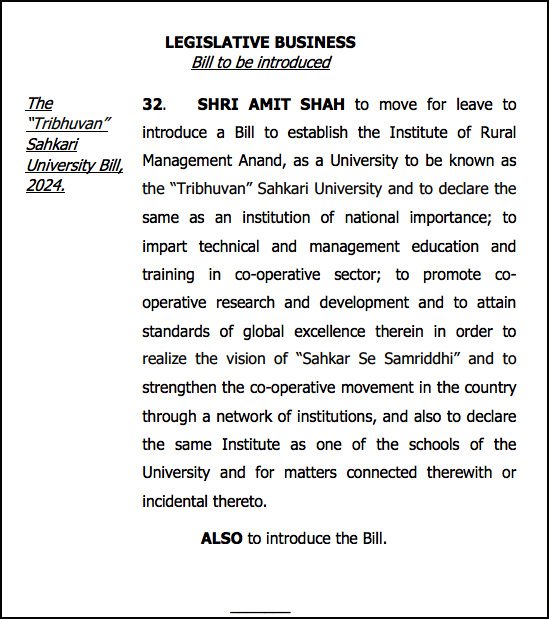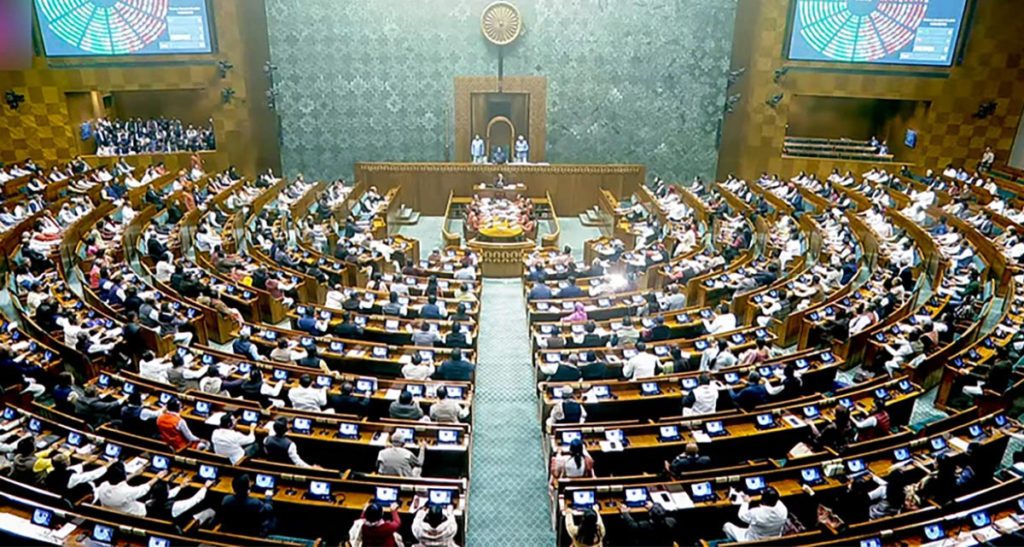The ‘Tribhuvan Sahkari University Bill, 2024’, which was scheduled for introduction in Parliament on Friday, could not be tabled. The Winter Session of Parliament concluded on the same day, leaving the proposed legislation in uncertainty.
The bill was listed in the revised list of business for the day but due to a variety of reasons, it could not be tabled.
The bill aims to establish the Institute of Rural Management Anand (IRMA) as a university, to be known as the ‘Tribhuvan Sahkari University’, and to declare it as an institution of national importance.
The university would focus on imparting technical and management education in the cooperative sector, promoting cooperative research and development, and striving for global excellence in these areas.
The vision of ‘Sahkar Se Samriddhi’ (Prosperity through Cooperation) is central to the bill, with the goal of strengthening the cooperative movement in India through a network of institutions.
The bill’s introduction was proposed by Home Minister Amit Shah, emphasizing the university’s role in advancing cooperative education, training, and research.

India currently has approximately 854,000 cooperatives registered under the State Cooperative Societies Act and Central Multi-State Cooperative Societies Act.
The establishment of the National Cooperative University is seen as a step toward organizing and strengthening the cooperative sector, offering better opportunities for stakeholders involved.
If enacted, the university would primarily benefit individuals, professionals, and leaders engaged in the cooperative sector.
By promoting cooperative principles and values, it has the potential to act as a catalyst for socio-economic growth and inclusive development across the country.
The National Cooperative University could play a pivotal role in advancing the cooperative movement in India, fostering education, research, and sustainable development.
Gujarat based IRMA, which will be known as the ‘Tribhuvan Sahkari University’, was established in 1979 under the leadership of Dr. Verghese Kurien, the Father of the White Revolution in India, with support from NDDB, the Swiss Agency for Development Cooperation (SDC), the Government of India, Government of Gujarat, and the erstwhile Indian Dairy Corporation.
IRMA is a premier institution of professional learning offering management programmes with a focus on understanding real management problems and socio-economic realities of under-served communities through intensive fieldwork.
